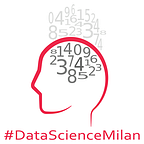Empowering the Bending Spoons’ platform with data science
On November 7, 2023, Data Science Milan hosted a Meetup at the amazing Bending Spoons headquarters.
The Bending Spoons startup, founded in 2013, became famous for app development. Today, it is considered one of the best tech companies in Europe, with an international culture at its core.
“Empowering the Bending Spoons’ platform with data science”, by Andrea Maiorana
Andrea began introducing the platform, which is used to build, acquire, improve, and operate products, mostly digital ones, throughout their entire lifecycle.
Bending Spoons Data Science Pipeline
The platform’s data pipeline can be summarized in three main steps. It starts by collecting data from clients through app backends, app stores, and advertising networks using a set of purpose-developed tools. The data is then stored in a centralized data warehouse, the single place where the Company can access it. The final step involves transferring this data to various activities, ranging from data exploration to measuring and predicting app user KPIs.
Data Scientist’ job at Bending Spoons
The role of a data scientist at Bending Spoons revolves around the idea of measuring and predicting app user metrics.
Andrea started discussing some challenges related to KPI measurement to support decision-making. The goal is to ideally obtain unbiased and efficient non-parametric estimators of user profiles for a given user base, complete with confidence intervals. The first challenge arises from censoring, as not all users were observed for the same duration. However, it’s crucial not to discard all user information, as it may contain valuable data. The second problem stems from the strong correlation between different data points in the profiles. If not handled properly, this correlation can lead to significant underestimations in the intervals, potentially resulting in incorrect decision-making.
The last issue for this topic regards how to exploit and serve these custom metrics, in a quick and user-friendly way. The accessibility of metrics given by big SQL queries brings a complex process that can become very expensive.
In the next session, Andrea discussed the prediction of app user metrics, highlighting a common challenge: predicting metrics for app users over a short duration instead of a longer one, such as with new users who lack sufficient data for model training. Bending Spoons addresses this prediction challenge through two approaches: either with single-user predictions or cohort-level predictions.
In the first approach, the primary challenge is predicting the lifetime value of each user based on their attributes and in-app actions. The issue arises when models are trained on old users, but the predictions are needed for new users, and they must be updated with additional actions observed from these users. The solution adopted, detailed in the poster session, involves a complex model architecture. This architecture comprises interconnected models, meaning predictions are derived from different moments in the users’ lifetime.
In the second approach, the primary challenge is to determine the average value of a certain metric across a user base. In other words, when given a group of users, the goal is to predict how a specific average user profile will evolve in the future. The solution, as detailed in the poster session, initially involved using parametric models with the assumption that a user can be either alive or dead at each renewal cycle with a certain probability. However, due to speed concerns, the adopted solution shifted to a Seq2Seq Deep Learning model.
Andrea continued the talk, delving into the validation process, addressing the same issues encountered earlier, and showcasing applications like automated advertising campaigns and personalized app content.
The meetup didn’t conclude with the talk alone. Instead, in the wonderful Bending Spoons atmosphere, we had the opportunity for aperitif networking and a poster session, allowing a detailed exploration of the topics introduced during the talk.
Recording
Written by Claudio G. Giancaterino & Matteo Boscato
